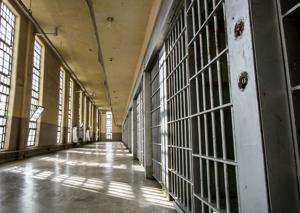Criminal justice group wants Edwards to increase financial transparency for reform savings

(The Center Square) – A criminal justice group known as Smart on Crime Louisiana is urging Gov. John Bel Edwards to provide financial transparency for millions in taxpayer savings that resulted from justice reform efforts in recent years.
The group wrote in an open letter to Edwards that 70% of savings from prison population declines are supposed to compensate crime victims and reduce inmate recidivism, or returning to jail or prison for crimes committed after being released.
“However, it’s unclear how this money is being spent,” several Smart on Crime steering committee members wrote.
“Understandably, the COVID-19 pandemic has been truly disruptive; even so, the ongoing public health crisis is no longer a sufficient reason to delay critical reporting,” they wrote.
A request for comment from the governor’s office was not returned.
Smart on Crime Louisiana is a coalition of state business leaders and conservative organizations that advocates for justice system changes, such as increasing job training for low-level offenders and reducing barriers to reenter the workforce. According to widely accepted research, employment is a key factor in reducing recidivism.
The group has helped shift broad “tough-on-crime” approaches that have led to mass incarceration in the past to data-driven approaches resulting in less crime while saving taxpayer money.
Such efforts have led to politically diverse partnerships and a landmark bipartisan reform package in 2017 known as the Justice Reinvestment Initiative (JRI). The initiative’s goals are to reduce prison admissions and repeat incarcerations, as well as coordinate inmate transitions back to society.
Before the reform, Louisiana was leading the nation in imprisonment with an incarceration rate nearly double the national average, according to the Louisiana Department of Public Safety and Corrections.
“The State was also sending people to prison for nonviolent offenses at 1.5 to 3 times the rate of other Southern states with similar crime rates,” the department’s 2020 annual report read. “The policy choices that led to this situation were costing the state nearly $700 million annually on corrections. Despite this investment, one in three inmates released from prison returned there within three years.”
The report also showed a 35% reduction in the state’s nonviolent prison population, an 18% decrease in caseload sizes for probation and parole officers and $29 million in total taxpayer savings; $12 million in 2017-18 and nearly $18 million in 2019.
The savings were awarded to “community organizations” through incentive grants, according to DPS, but the lack of details have caused concern.
As part of the reform, Edwards convened a JRI Oversight Council to ensure the funds were properly spent and meeting intended outcomes. Smart on Crime, however, asserts the council has not met since 2019 and Edwards has yet to fill three vacancies.
The criminal justice group is asking Edwards to provide a detailed accounting of JRI program grants from 2017-21 and to convene a fully-seated oversight council with public meetings.
“Full transparency of existing programs and reliable, timely data are critical, especially as state and local policymakers continue to understand and address a nationwide rise in crime,” the letter read. “The 2017 and subsequent reforms are too important – and their outcomes too consequential – to continue to be in the dark.”
Disclaimer: This content is distributed by The Center Square
